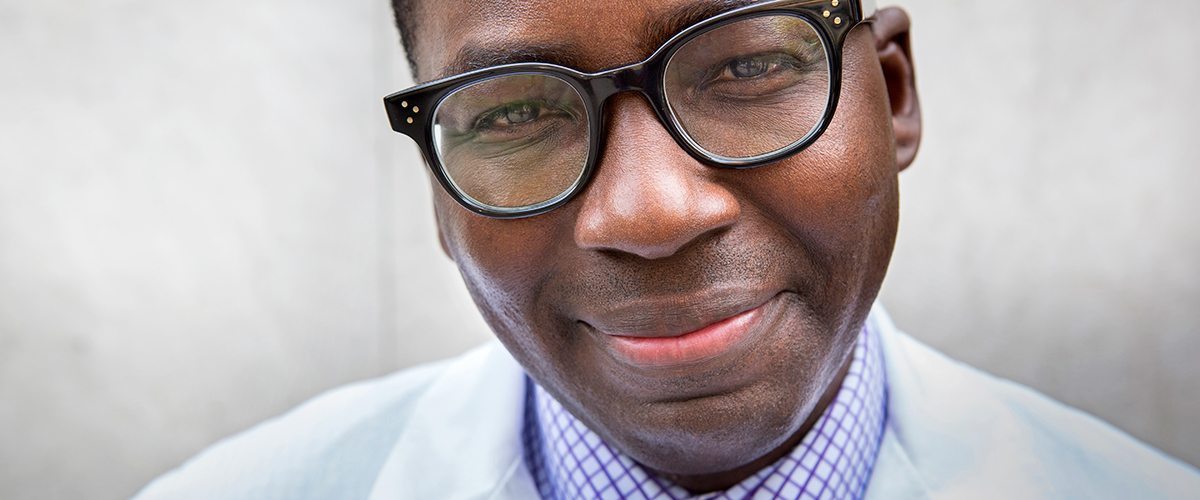Inside NYP: Dr. Olajide Williams
The neurologist on why he uses hip-hop to school kids on the signs of stroke.


I walk down the street in Harlem and I see kids standing on the corner, and they have their iPods on and they’re just rapping. Some might not be particularly good at English, some of them might be failing their English courses, but I see them reproduce rap lyrics with such precision and clarity. It strikes me that if I can include stroke symptoms in a rap song — if I can take a hard track and rap the symptoms — half the kids in the community will understand them. And it was as simple as that.
That’s why we use the hip-hop medium to educate children about the behavioral risk factors for stroke, such as unhealthy eating, a lack of physical exercise and bad habits like smoking and substance abuse. When those get out of control, you can develop diabetes or hypertension or have a stroke or a heart attack.
To address prevention, it’s important not to begin with the person who already has the condition, the stroke or the heart attack, not to begin with the person who has the risk factors for diabetes or hypertension, although those are both viable and important points of intervention, too.
It’s critical to go young. You need to begin before the primary risk factors are established. You need to begin with lifestyle habits. We thought we could get healthy habits in kids for life and turn them into witnesses, heroes, by getting them to call 911 if someone was having a stroke.
We have a whole team, including “Health MCs,” who are responsible for going into schools and delivering the message. It’s not merely an educational session; it’s an experience for the kids, and there is a difference between a lecture and an experience. We try to give kids an experience — that way it stays with them longer. We call it “edutainment.”
What we have built is not a stroke program but a model, a vehicle that we could use to address almost any disease, condition or public health problem. We gravitated naturally to healthy eating, particularly nutrition literacy, and then we created a program that looks at dementia and Alzheimer’s awareness. And we also created a physical activity program that’s based on breakdancing. We’ve reached about 12,000 kids through our stroke program alone, and now, with a grant from the National Institutes of Health, we’ve created a digital Hip Hop Stroke program that we are rolling out across New York state.
Whenever I get a call from one of my research assistants telling me a kid from our program just saved the life of a grandfather or a parent, it gives me deeper joy and satisfaction than anything else outside the love of my family and close friends. It’s that rewarding.
Dr. Olajide Williams, associate professor of neurology at Columbia University Vagelos College of Physicians and Surgeons, director of acute stroke services at NewYork-Presbyterian Hospital, and chief of staff/chief medical officer of neurology at Columbia University Irving Medical Center, is the founder of Hip Hop Public Health. He works with rappers like Doug E. Fresh to devise music-based programs to teach kids how to recognize the signs of stroke and understand the lifestyle habits that contribute to it.

